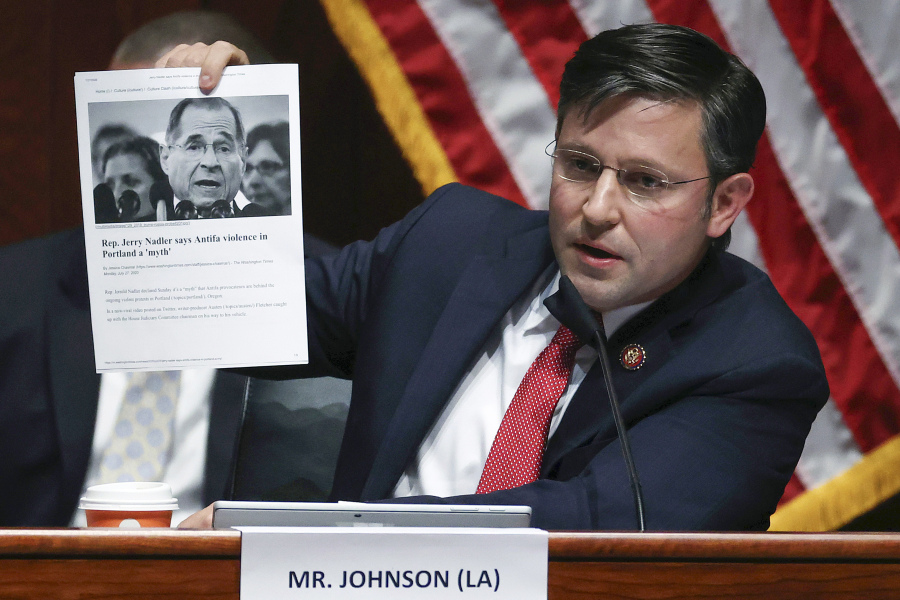The new leader of one of the chambers of Congress that will certify the winner of next year’s presidential election helped spearhead the attempt to overturn the last one, raising alarms that Republicans could try to subvert the will of the voters if they remain in power despite safeguards enacted after the 2021 attack on the U.S. Capitol.
Mike Johnson, the Louisiana congressman who was elected speaker of the House of Representatives on Wednesday after a three-week standoff among Republicans, took the lead in filing a brief in a lawsuit that sought to overturn Joe Biden’s 2020 presidential election win. That claim, widely panned by legal scholars of all ideologies, was quickly thrown out by the U.S. Supreme Court.
After the 2020 election, Johnson also echoed some of the wilder conspiracy theories pushed by former President Donald Trump to explain away his loss. Then Johnson voted against certifying Biden’s win even after the Jan. 6 attack on the Capitol.
Johnson’s role three years ago is relevant now not only because the speaker is second in the line of presidential succession, after the vice president. The House Johnson now leads also will have to certify the winner of the 2024 presidential election.



